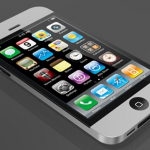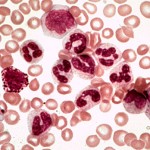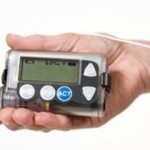WebMD – Smartphone Apps for Diabetes: Do They Really Work?

You can use them to count carbs, log blood sugar, but users say they’re no substitute for patient knowledge and a doctor’s care.

You can use them to count carbs, log blood sugar, but users say they’re no substitute for patient knowledge and a doctor’s care.

Once again, FDA had the privilege of attending the 2013 DiabetesMine Innovation Summit this past November. This was another great opportunity for us to share current FDA regulatory perspectives with the diabetes community and to update attendees on many of FDA’s ongoing efforts related to diabetes.

As an interactive map from the Council on Foreign Relations illustrates, several diseases that are easily prevented with vaccines have made a comeback in the past few years. Their resurgence coincides with changes in perceptions about vaccine safety.

If you are a high school senior with Type 1 diabetes who is looking to attend an accredited four-year university, college, or technical or trade school in the fall, then you’ll want to learn more about the variety of college scholarships currently being offered by the Diabetes Scholars Foundation.

As Congress considers cuts to the Food Stamp program, new research suggests that running out of food at the end of the month is a real health risk for those with diabetes, and is linked to an increased risk of being hospitalized for hypoglycemia.

In the quest for new treatments, U.S. researchers are looking to traditional Chinese medicines, some of the oldest remedies in the world. A recent discovery resulted in a better treatment for a type of leukemia that strikes about 1 in 250,000 people in the U.S.

Another year brings a brand new batch of diabetes books that we’re excited to review here at the ‘Mine. These aren’t any of the plentiful “Reverse Your Diabetes” or “This is What You Should Eat” books, mind you.

Good blood sugar control is different for every person, but there are some common tips to follow that can help improve your numbers.

Although simple dry skin may be a result of washing your hands with drying soap or alcohol based cleansers too frequently, it can also be a sign of high blood glucose.

There has been a carefully guarded secret in medicine: Evidence is often inconclusive, and experts commonly disagree about what it means. Most medical decisions aren’t cut and dried. Instead they’re usually made with uncertainty about what is best for each person.

Everyone’s path through Medicare is different, and the road you take depends on your health care priorities. Under Medicare, you have different options to consider for how you want to receive your benefits. If you’re keen to keep seeing a beloved endocrinologist, you’ll focus on retaining access to your current providers.

Dr. Leana Wen is the co-author of “When Doctors Don’t Listen: How to Avoid Misdiagnoses and Unnecessary Tests,” a text she wrote with Joshua Kosowsky, MD. The book arose from their frustration at the number of tests modern medicine seems to require, often with no useful results or help in arriving at a diagnosis. In […]

The U.S. National Institutes of Health just published its 2014 Evidence-Based Guideline for the Management of High Blood Pressure in Adults, [Eighth Joint National Committee (JNC 8)]. The new guidelines offer a series of changes from JNC7 which was last issued in 2003.

The start of a new year is a time when many of us in the Diabetes Community get especially curious about what latest and greatest new tech tools we’ll be able to get our hands on soon. It’s never easy to get straight answers on this.

People are increasingly turning to mindfulness mediation to manage health issues, and meditation classes are being offered through schools and hospitals. But doctors have questioned whether this ancient Eastern practice really offers measurable health benefits.

It’s become a Holiday Season tradition of ours to remind you all about an awesome eBook that the DOC helped us curate a few years back: Nuggets of Wisdom from the Diabetes Community.

There have been some exciting steps forward on long-awaited product developments, from FDA filings to approvals that the Diabetes Community has been anticipating. Not to mention all the great work and progress on the patient advocacy front in connecting with industry regulators, and bringing real patient issues to the forefront.

In Oregon, state health officials decided on Dec. 5 to dramatically reduce the number of test strips allotted to people with type 2 diabetes who are on Medicaid and don’t take insulin

Results from the global Diabetes Attitudes, Wishes and Needs 2 study (DAWN2TM) presented December 5 at a symposium during the World Diabetes Congress of the International Diabetes Federation in Melbourne, Australia, show that only 29 percent of people with diabetes report that their healthcare team asks for their input when making their treatment plans.

Stroke deaths in the United States have declined dramatically in recent decades due to improved treatment and prevention, according to a scientific statement published in the American Heart Association journal Stroke.